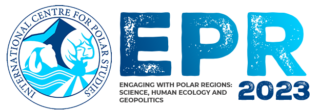Deadline and
Important Dates
- Online registration starts : August 15, 2023
- Last date for abstract submission : October 10, 2023
- Notification of Acceptance of Abstract : October 10, 2023
- Online registration Closes : October 15, 2023

EPR 2023 will provide an international convergence platform to young scientists, research scholars, policymakers and government officials from various disciplines, including science, social sciences, humanities, environmental studies, and indigenous studies, involved in Polar governance, conservation, and sustainable development. The conference aims to develop consensus among scientists and policymakers towards research and innovations. The physical interactions at EPR-2023 will strive to encourage a higher degree of cooperation and collaboration in cross-border scientific programmes among like-minded research groups/institutions for sustaining research in the area of polar science & geopolitics, climate change and sustainability.
Researchers are invited to participate and present their findings on various aspects of the Polar Regions, including the Himalaya. The delegates may be invited and selected through oral and poster presentations. High-quality original and unpublished work (conceptual, constructive, empirical, experimental, or theoretical) shall be encouraged. EPR 2023 will feature plenary lectures, invited lectures, oral and poster presentations. The abstract text is to be limited to 350 words, typed in Arial font size 12 in MS Word, mentioning the Title, Name(s) of the Author(s), and affiliation(s). This should be submitted through the conference website http://epr2023.com. Abstracts must focus on scientific/operational results or their application. An author can submit only one abstract as a first author.
The International Centre for Polar Studies (ICPS), a new initiative at the Mahatma Gandhi University, Kerala, is a Polar Cooperation Centre of both science and social sciences.
The rapid changes in polar ecosystem have ecosystemic, socio- political and governance implications. According to the Intergovernmental Panel on Climate Change (IPCC), the melting glaciers, disappearing sea ice,
